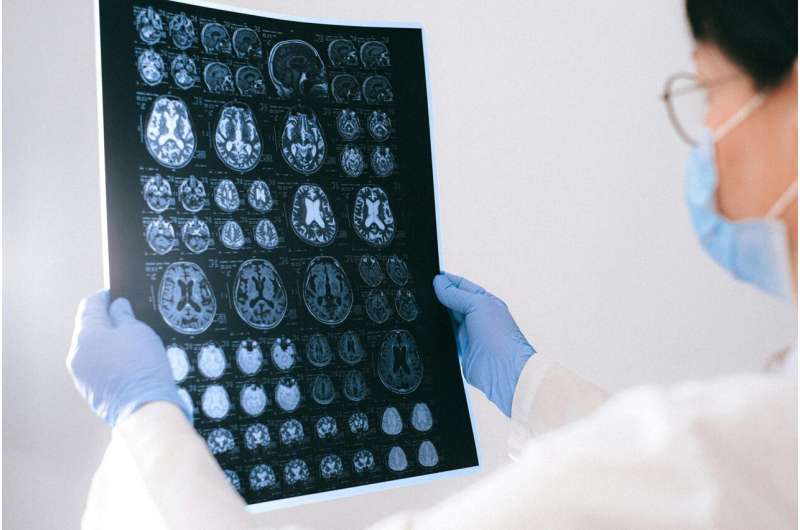Radiologists assess response to large-scale terror attack and mass casualties

A new study highlights how radiology departments in Israel managed the massive influx of patients during the 2023 terror attack, emphasizing flexible protocols, AI tools, and staff resilience to improve crisis response and patient outcomes.
In a recent study published in Radiology, researchers from Israel have detailed the critical role of radiology departments during the aftermath of a devastating mass casualty incident caused by a terror attack in southern Israel on October 7, 2023. The incident resulted in an overwhelming influx of patients, with the regional trauma center receiving 673 injured individuals, surpassing the typical capacity for mass casualty events.
The study highlights the importance of robust in-hospital triage protocols, swift mobilization of medical staff, and flexible imaging resource management during such crises. Lead author Dr. Gal Ben-Arie, a senior radiologist and head of Innovation & Artificial Intelligence in Imaging at Soroka University Medical Center, emphasized that the scale, duration, and ongoing threat (including active missile alerts and ongoing rocket fire) demanded innovative approaches to radiology care.
Unlike traditional mass casualty scenarios, the 2023 attack created a prolonged chaotic phase with continuous casualties arriving from various locations, often transported rapidly with minimal triage. Many patients presented with penetrating injuries from firearms, grenades, or explosives, creating extreme pressure on imaging services. Rapid and accurate imaging was vital for guiding clinical decisions in this high-stakes environment.
Over 400 patients arrived within the first eight hours, through ambulances, helicopters, and private vehicles. The ongoing threat complicated staff mobilization, requiring the use of multiple scanners—including shielded, non-emergency ones—and integrating artificial intelligence (AI) tools for real-time analysis. A multi-algorithm AI suite analyzed all CT scans in real-time and flagged discrepancies, enhancing safety and workflow.
Remarkably, despite the surge, median CT turnaround times decreased from 54 to 28 minutes, achieved through strategic staffing and scanner deployment, while X-ray times increased slightly to prioritize critical cases. AI served primarily as a safety net, alerting clinicians to urgent findings and cross-checking reports.
The team also had to balance ongoing emergency care for other acute patients, maintaining routine services alongside the surge in trauma. Staff worked under intense physical and emotional stress, often caring for patients while worried about their own families. This resilience underscores the importance of disaster preparedness, including staff role clarity, imaging triage at the scene, and the use of shielded scanners.
The study provides actionable recommendations: enhancing staff surge capacity, integrating AI for real-time safety checks, planning flexible staffing models, and emphasizing rapid yet precise imaging to save lives and improve outcomes. Such strategies are applicable to hospitals of all sizes to better prepare for future large-scale crises, whether from terrorism, natural disasters, or other emergencies.
Building flexible and resilient healthcare systems, with focus on staff well-being and adaptive workflows, is crucial for managing prolonged and complex mass casualty incidents effectively.
Stay Updated with Mia's Feed
Get the latest health & wellness insights delivered straight to your inbox.
Related Articles
Ancient Fungus from King Tut’s Tomb Reveals Potential Cancer-Fighting Compounds
Research reveals that toxic fungus from King Tut’s tomb produces compounds with potential to fight cancer, transforming a feared organism into a promising medical tool.
Innovative Technology Decodes Immune Cell Communication to Personalize Cancer Treatment
A groundbreaking technology enables detailed mapping of immune cell interactions, paving the way for personalized cancer therapies and improved immunotherapy outcomes. Discover how this innovation enhances understanding of immune responses in infections and cancer.
Updated Guidelines for Managing Pediatric Atopic Dermatitis
The American Academy of Pediatrics releases updated guidelines for managing atopic dermatitis in children, focusing on skin care, topical treatments, and trigger avoidance to improve patient outcomes.
New Study Reinforces the Role of Physical Activity in Preserving Brain Health
Regular physical activity plays a key role in preserving brain size and health during aging, regardless of body weight or metabolic health, according to a recent large-scale study.



